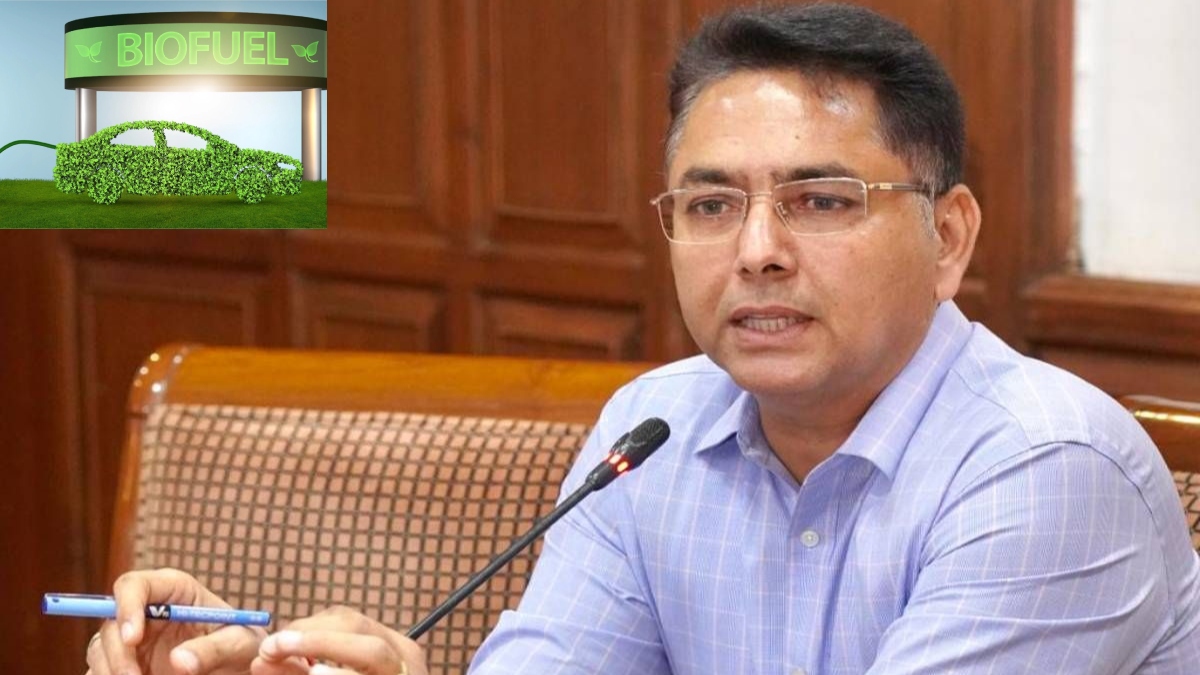The Rise of Biofuel Production in Punjab
In the heart of India, Punjab is hailed for its rich fields and ever-productive agriculture. Yet, it’s a place where tradition meets innovation, crafting solutions not just for present dilemmas but for future prosperity. The biggest endeavor in this journey has been Punjab’s ambitious stride towards becoming a national leader in biofuel production.
Bhagwant Mann’s Bold Steps
Under the visionary leadership of Chief Minister Bhagwant Mann, Punjab is ready to embrace the future. The state’s new biofuel policy sets an ambitious target: by 2035, biofuels should meet 20% of the state’s total fuel demand. This bold move aims to tackle environmental challenges and simultaneously provide economic benefits.
A Green Revolution
In a land synonymous with farmer strength, the idea is not just about fuel. It’s about taking the same spirit that feeds the nation and turning it towards the country’s energy needs. At the core of this initiative is the conversion of agricultural residue into compressed biogas (CBG), 2G bioethanol, and biomass pellets. This will not only cut down on waste but will also provide an additional income source for farmers.
Addressing Farm Concerns
Punjab’s commitment to solve the issue of stubble burning, a persistent agrarian headache, is reflected in the establishment of CBG projects. The state has approved 58 CBG projects with a total production capacity of about 720 tons per day, primarily utilizing paddy straw and other agricultural residues. Once operational, these efforts will consume approximately 2.4 to 2.5 million tons of straw annually.
The initiative is not just about the environment. It sparks hope for economic revival, promising direct employment to nearly 5,000 people and indirect job opportunities for an additional 7,500.
Promises for Sustainable Agriculture
Biofuels represent a cleaner alternative to fossil fuels, producing fewer greenhouse gases and thereby contributing positively to environmental health. The potential of converting waste into energy reflects a promising shift towards a circular economy. Through sustainable practices, Punjab is penciled to become an exemplar state in eco-friendly progress.
Acknowledging monoculture’s toll on soil health and groundwater depletion, Aman Arora advocates for inter-cropping and crop rotation. These strategies promise not only improved soil fertility but also greater crop resilience, bolstering agricultural productivity while benefitting the environment.
The Road Ahead
As of yet, four CBG projects are operational, with a combined capacity of 85 tons per day. More plans are underway. A new project with a 20 TPD capacity will commence by the financial year 2024-25, and six additional projects, totaling a capacity of 59 TPD, are scheduled for the subsequent year.
The shift towards a brighter, cleaner future in Punjab isn’t just a governmental ambition—it’s a shared dream among its people. As this narrative unfolds, the actions taken today will resonate for generations, fueling not just vehicles but the entire legacy of a vibrant and forward-thinking Punjab.
Read More:
also read: UP: Dense Fog Triggers Multi-Vehicle Crash On Delhi-Lucknow Highway |WATCH Video













